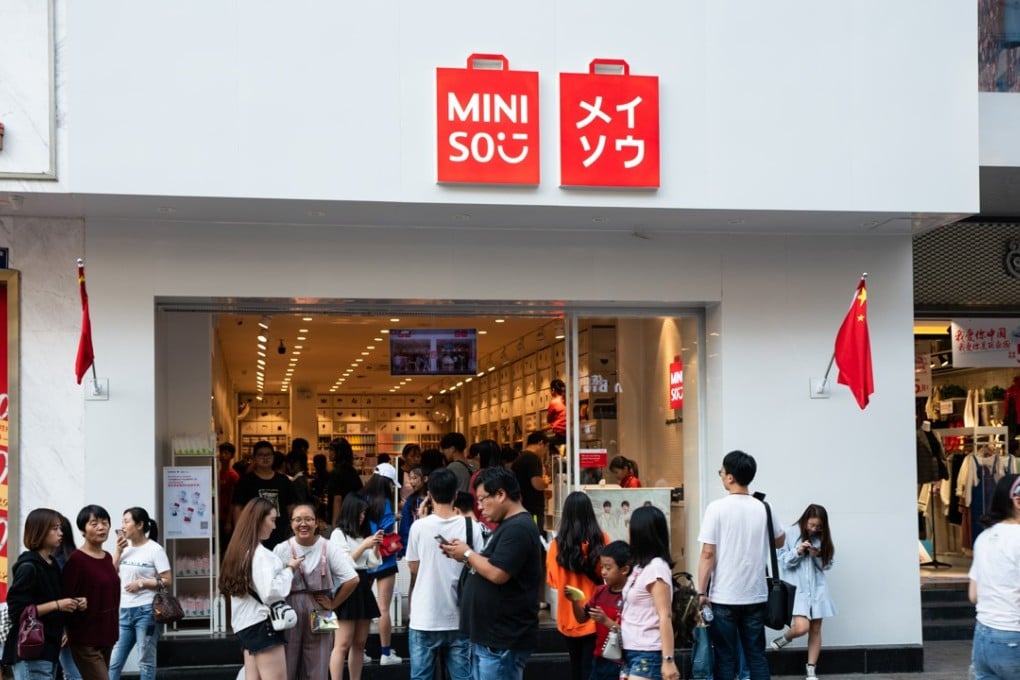Miniso far, Mumuso good: how China’s ‘cultural copycats’ took over the world
- Asia’s discount retailers are aping Japanese or Korean culture, but it turns out most of their products – and their operations – are from China.
- Is this necessarily a bad thing, when customers can’t get enough?

Only a decade ago, the term “fake goods” conjured visions of counterfeit monogram bags and other faux designer items. Today, the same label is being applied to a growing number of discount chains of questionable origin.
Miniso, Mini Good, Mumuso, Yubiso, Yoyoso, Ximiso, Ilahui, Nome, Youi … the long, ever-growing list of names sounds more like a children’s rhyme than a tally of discount chains. But over the past few years – from historic shop buildings on the streets of Vancouver to glossy new storefronts of mega malls in Seoul – the world has seen the proliferation and rapid rise of dollar-store brands – many originating from China – selling everything from fuzzy bath slippers to brightly-coloured USB cables.
Miniso is at the helm of this trend. The retailer first emerged in 2013, and has become a global phenomenon over the past five years. Last year, with over 2,600 stores in more than 60 nations, the brand hit US$1.8 billion in sales thanks to its “three high, three low” business model: high efficiency, high technology, high quality; and low price (products are priced between US$1 and US$30), low cost and low margin.
But while their products are well received, consumers remain confused by the brand’s backstory.
“When I first visited Miniso, I thought the store and its products were either from Japan or Korea,” said Andrea Mak, a 36-year-old Hongkonger who frequents their local outlets. “The items they sold, like seahorse-shaped silicone tea infusers, resembled things you’d find at Muji, while the shop decor was like being inside of Uniqlo.”
Mak is not the only one to bring this up. Miniso has often been accused of copying several Japanese brands. When the retailer first appeared, with its now-ubiquitous red-and-white logo featuring a stylised shopping bag, many found its shopfronts and branding uncannily similar to Japanese fast-fashion brand Uniqlo.
Meanwhile, Miniso’s minimalist homewares are viewed as being of a similar vein to Japanese lifestyle brand Muji. And finally, its business and retail model are often compared with Japanese discount chain Daiso. But perhaps the most serious claim the brand faces is one of cultural appropriation, as critics say the brand is trying to portray itself as culturally Japanese.
